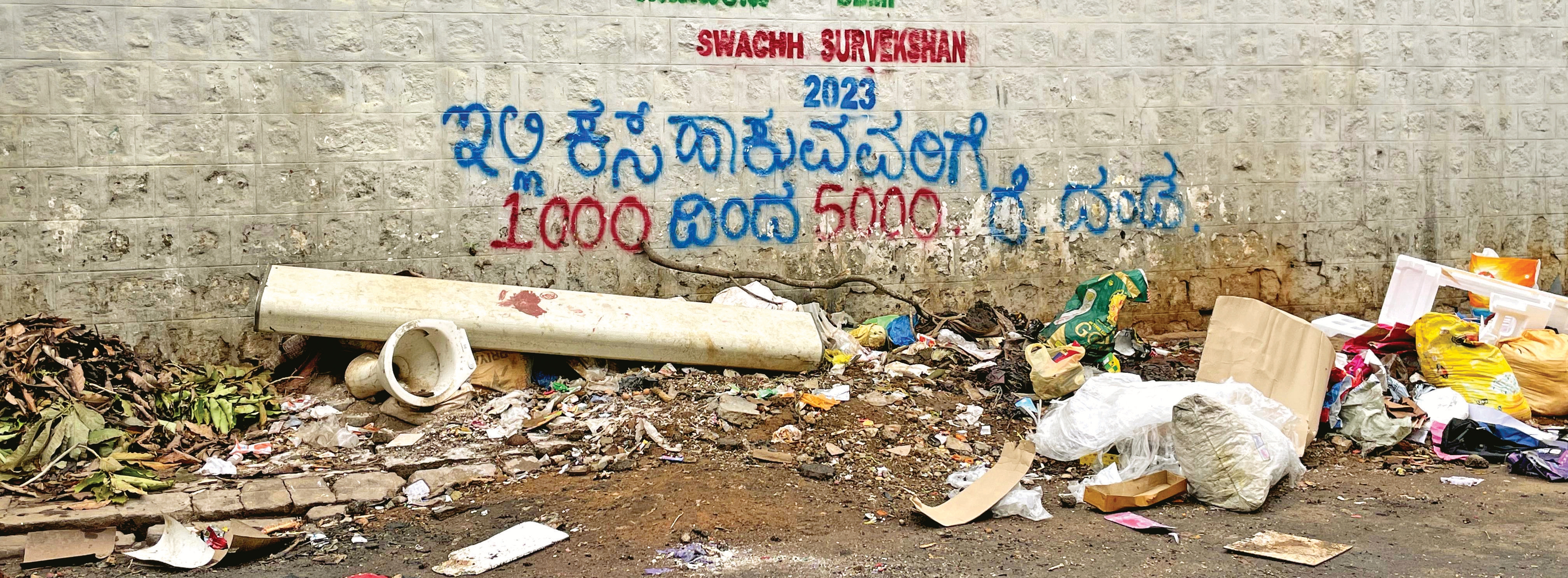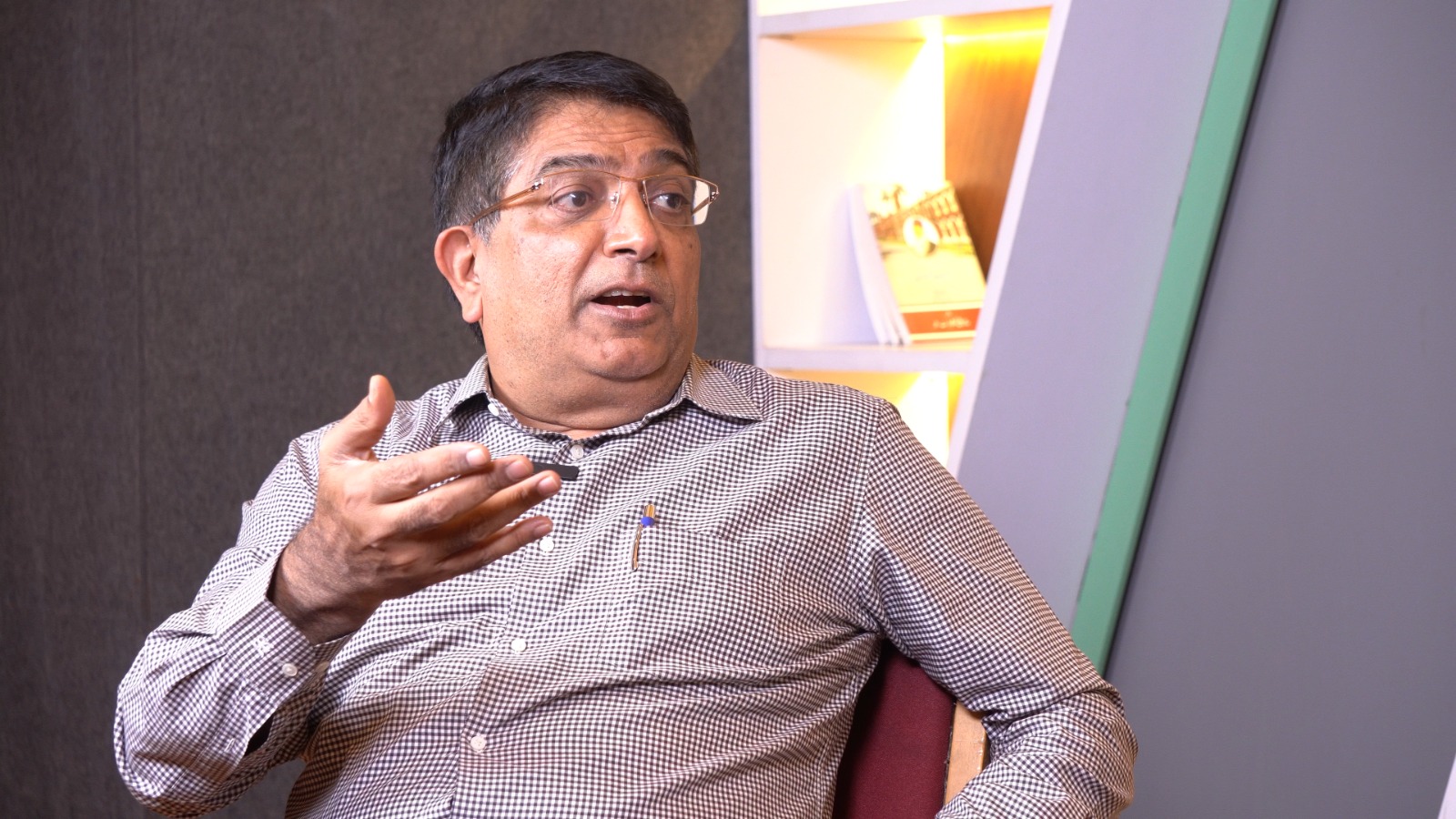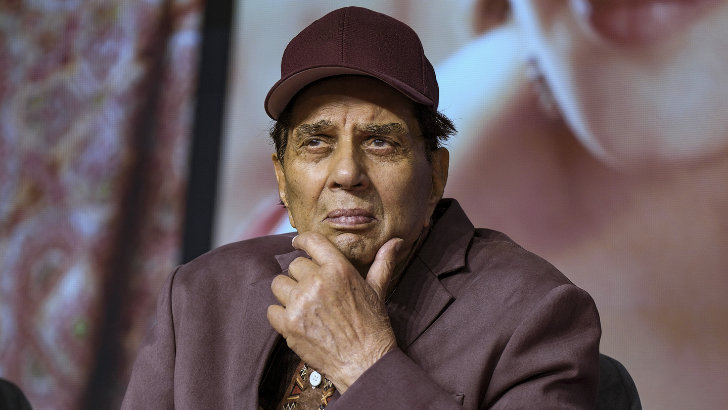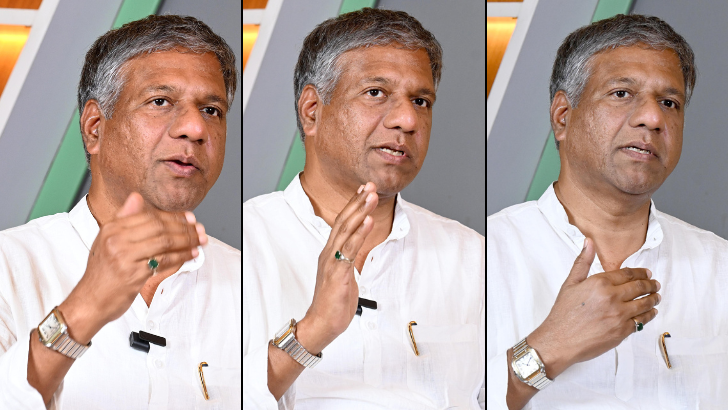Unsorted Trash Tales
Poor waste segregation compound Bengaluru’s garbage crisis
-
Despite citizens' efforts to segregate their waste, BBMP workers allegedly mix it all together once collected. PHOTO: MOHAMMED ASAD
BENGALURU, 1 DEC
Bengaluru, the tech capital of India, faces a garbage crisis and inconsistent waste segregation practices have left many areas struggling to manage the City's burgeoning waste problem.
Despite citizens' efforts to
segregate their waste, Bruhat Bengaluru Mahanagara Palike (BBMP) workers
allegedly mix it all together once collected.
"We segregate waste
diligently, but the collectors dump it all together in the truck," Anupama
Shetty, a college professor from Yelahanka told Salar News. “What’s the point
of segregation if BBMP doesn’t follow through?” she added.
Dry waste collection centres,
crucial to sorting and recycling waste, are also in short supply. There are only
164 centres across the City even though 198 are needed.
South Zone: The biggest waste generator—10,00,000 kg garbage daily
The South zone, home to the City’s
largest population of 30 lakh, generates over 1,000 tonnes of waste daily.
Among the most waste-generating areas in this zone is BTM Layout, which alone
produces close to 300 tonnes of waste followed by Chickpet, Byatarayanapura,
Chamarajpet, and Bommanahalli.
While many upscale neighbourhoods
are adopting segregation, slums and unregulated areas lag. "Segregation
rates in South zone hover around 50 per cent. The challenge is to bring
informal settlements into the formal waste collection system," Rajesh
Kumar, Health Inspector, South Zone told Salar News.
East zone: A hotspot for commercial waste – 8,00,000 kg garbage daily
The East zone, known for its commercial hubs such as Whitefield, Marathahalli, and Indiranagar, generates about 800 tonnes of waste daily. A large portion of this waste comes from offices, malls, and eateries, with mixed waste being a big challenge.
BBMP Assistant Executive Engineer
Anand Reddy said, "Corporate entities have embraced waste segregation
better than many residential areas."
Daily per capita waste generation
from residential houses is pegged at 309g and 300g in slums. According to BBMP,
58.5 per cent of the waste generated is from households, 49.7 per cent from
commercial establishments and 6.8 per cent from street sweeping.
West Zone: Market areas struggling to cope– 7,00,000 kg garbage daily
The West zone, home to KR Market, generates 700 tonnes of waste daily, dominated by wet waste from the market. Shivanna, a vegetable trader at KR Market told Salar News that the market is a mess after 11 am.
“BBMP workers collect waste in the
morning but by noon, it’s back to square one. We’re constantly surrounded by
flies and foul smells,” he said.
Rukmini K, Joint Health Officer for
West Zone, claimed that the only way to solve the issue is via public
awareness.
Rapid urbanisation in RR Nagar led
to an increase in waste generation, now at 600 tonnes daily. Segregation
remains a concern in these newly developed areas. Manjunath MS, a resident of
Nayandahalli, said, “Due to inefficient garbage collection, residents have
started using the stretch to discard their garbage.”
North zone: Residential, commercial
areas see more garbage– 8,00,000 kg garbage daily
The North Zone, which includes
commercial and but mainly residential areas such as KR Puram, Byatarayanapura,
Yeshwanthapur, Dasarahalli, Mahalakshmi Layout, Malleshwaram, Hebbal, and
Pulakeshinagar, generates approximately 600 to 800 tonnes of waste per day.
A senior engineer from the BBMP’s
Solid Waste Management team, on the condition of anonymity, said, "The
garbage problem persists due to poor transparency and accountability in the
system."
Back-to-back setbacks
In 2023, BBMP floated 89 tenders for door-to-door garbage collection in 243 wards, at Rs 590 crore per year. It was put on hold indefinitely after the tenders’ faced allegations of collusion among bidders and the BBMP Garbage Contractors' Association blamed the BBMP for fixing low rates to help bidders.
This September, the government
decided to send nearly half of the City's garbage to Doddaballapur, Bidadi,
Mandur and Gollahalli. However, this was scrapped after protests from residents
and local MLAs.
A major issue contributing to the
poor garbage management is the lack of BBMP elections, which have not been held
since 2020. This has led to infighting and a lack of accountability, with
officials blaming each other for the garbage mess.
SM Krishna’s Singapore dream
Bengaluru has long sought solutions to its growing garbage problem. In 2000, then chief minister SM Krishna introduced a door-to-door garbage collection system, hoping to clean up Bengaluru and model it after the swanky Singapore. At the time, there was far less plastic packaging and waste generation was relatively low. However, as the City expanded, the waste challenge grew exponentially.
Where are the dustbins?
In 2017, BBMP acknowledged the failure of the door-to-door collection system, particularly in commercial and slum areas. Hence, it reintroduced garbage bins for segregating dry and wet waste for Rs 4 crore. Unfortunately, the City suffers from a dearth of dustbins.
A BBMP official told Salar News,
“The dry and wet waste bins were introduced but are not in use in most places.
This is because the City has been struggling with waste management for years.”
The way forward
BBMP Chief Tushar Girinath told Salar News that the civic agency is aiming to reduce the amount of waste sent to landfills by introducing new waste processing facilities, including a waste-to-energy plant in Bidadi. This facility is expected to handle 600 tonnes of waste daily and generate 11.5 megawatts of power, he said.
BBMP proposed an increase in the
solid waste management cess earlier this year. The proposal suggests raising
monthly cess for households from Rs 30-50 to Rs 100.
BBMP has also submitted a proposal
to the government to impose a cess of Rs 12 per kg of waste on bulk generators,
such as apartments, hotels and malls.
Leave a Reply
Your email address will not be published. Required fields are marked *














.png)
.png)
.png)
.png)

.jpg)

